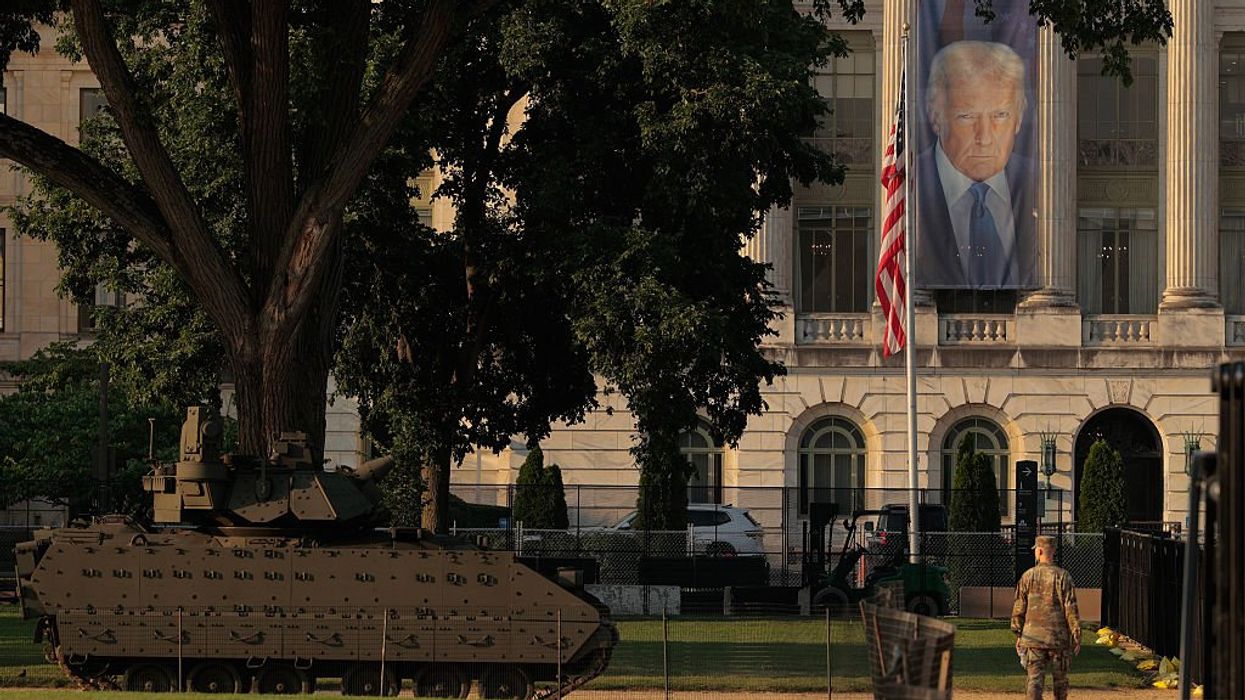On May 18, 2015, I took an oath to support and defend the Constitution against all enemies, foreign and domestic. Over a decade later, as a Lieutenant Commander in the Navy with a J.D., I resigned my commission.
I saw the signs. I feared if I stayed any longer I’d be ordered to act against my conscience.
Few military officers outside of Judge Advocate Generals have a law degree, but I do. I also flew helicopters–MH-60Rs–and am highly trained to fight submarines and fire hellfire missiles and torpedoes. I studied law while on active duty, graduating with a 4.0 GPA, and I was already almost halfway through getting a Master of Laws in Global Business Law from Columbia University when I left the Navy. When it comes to matters of global concern and constitutional law, I think it would be safe to assume I have a more formal background and experience than most.
But in my final months, I watched in horror as overtly unconstitutional moves were made within the government. On June 2, I left the Navy. On June 9, Trump ordered 700 Marines to storm into Los Angeles. Let that sink in. An American president just deployed American troops against an American city. Remember: we are not at war. This was not a military necessity but an act of political theater, designed to intimidate dissenters and strut for supporters. And a reckless gesture driven by personal, petty politics. It undermines everything I have believed in as a service member, an American, and someone committed to the study of law.
Throughout my service, I contemplated the ethical hypothetical: what would I do if asked to carry out an order I believed to be illegal or immoral? I knew I’d refuse, even at the cost of my career. I’m a queer Jewish girl from Berkeley, California. When it comes to foreign service, I value diplomatic solutions over militaristic ones. What was I doing in the military in the first place? Well, for better or worse—and I tend to believe for worse because it is by design—the military is the single best way in this country to get healthcare and education, not to mention financial security. The enlisted ranks are filled with young people trying to get a foot in the door to a better life. Showing up for them was a mission that always motivated me, even if the idea of war did not. I told myself, if you leave, those sailors will have one fewer advocate. One fewer ally to help them navigate an often unforgiving environment. So, I hoped I would never be given an order I couldn’t follow—that I could trust my superior officers. I left the military in part because that confidence had faded. As a legal officer, I felt hypocritical prosecuting sailors for offenses far less egregious than that of our commander in chief, and as a command security manager, I struggled to explain the lack of accountability after our secretary of defense committed a security breach that I knew would get me sent to prison.
I am proud of my military service, but it may quickly become a source of shame for myself and all other veterans if the institution becomes an unaccountable political tool for an unaccountable political tool. The repeated illegal and unnecessary authorization of military force is the beginning of the end.
The United States military is supposed to be a humble institution, one entrusted with a solemn duty to defend this nation. Yet, tomorrow, Trump will order soldiers to display force at his birthday party in a vanity exercise that will cost American taxpayers $45 million.
It’s hard to support the troops when they’re marching on Washington and Los Angeles. But many of these enlisted folks joined for financial stability. When the consequences can be cut in rank or pay, a dishonorable discharge, or a court-martial, what 18-year-old kid is prepared to challenge the orders of the officers above them? And when Trump has fired all the dissenters, what’s left is blind obedience. Now is the time for insubordination. It will take an extraordinary level of bravery.
We can help them. As a country, we can show zero tolerance for this frivolous use of our armed forces. Veterans, active duty service members, and civilians alike must join together to condemn these unlawful and un-American actions. That is the call of duty now. We must all answer.
Julie Roland has deployed to the South China Sea and the Persian Gulf as a helicopter pilot before separating from the Navy in June 2025 as a Lieutenant Commander. She graduated law school from the University of San Diego, is currently pursuing a Master of Laws from Columbia University, and is the director of the San Diego chapter of the Truman National Security Project.




















Trump & Hegseth gave Mark Kelly a huge 2028 gift